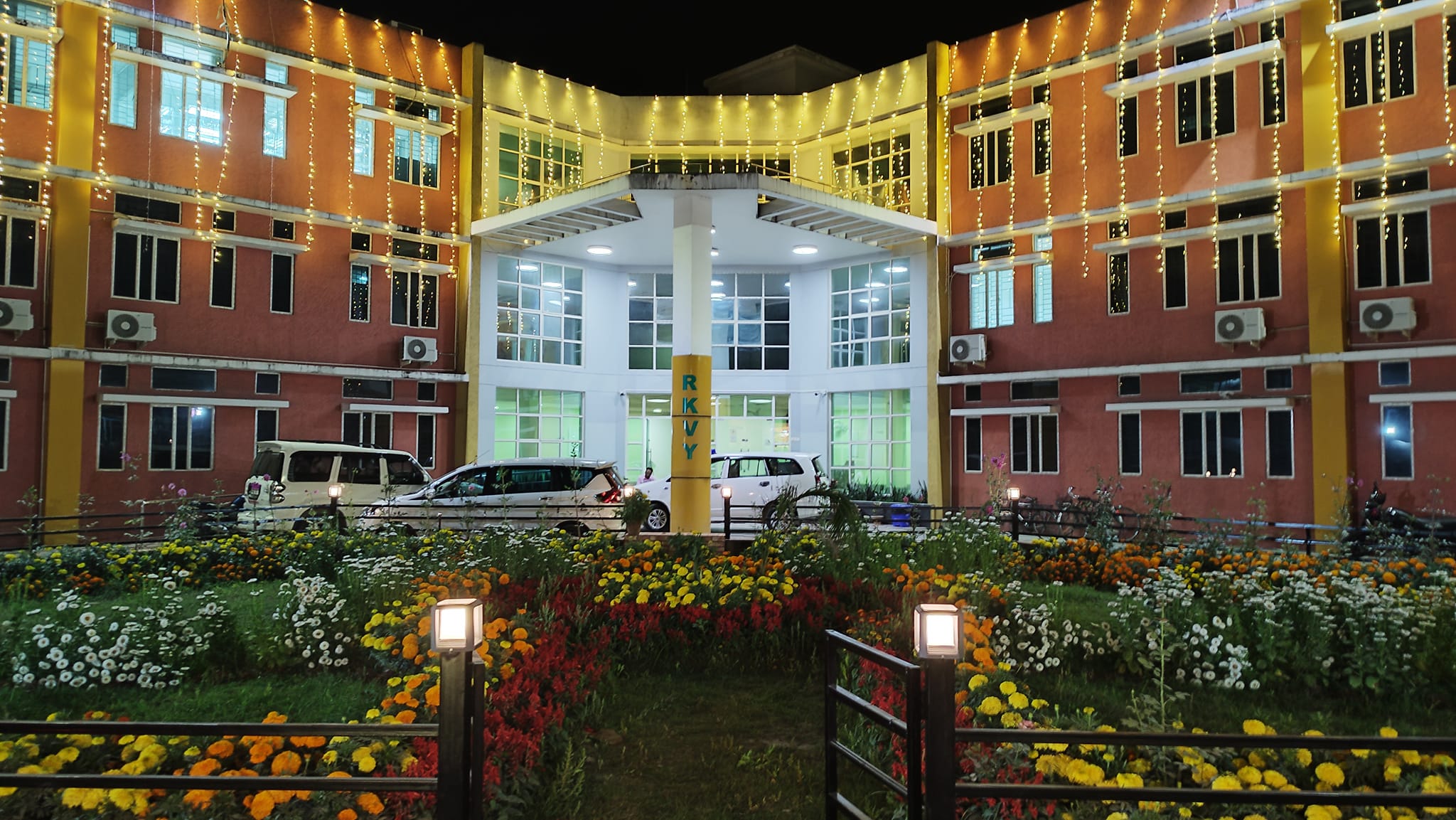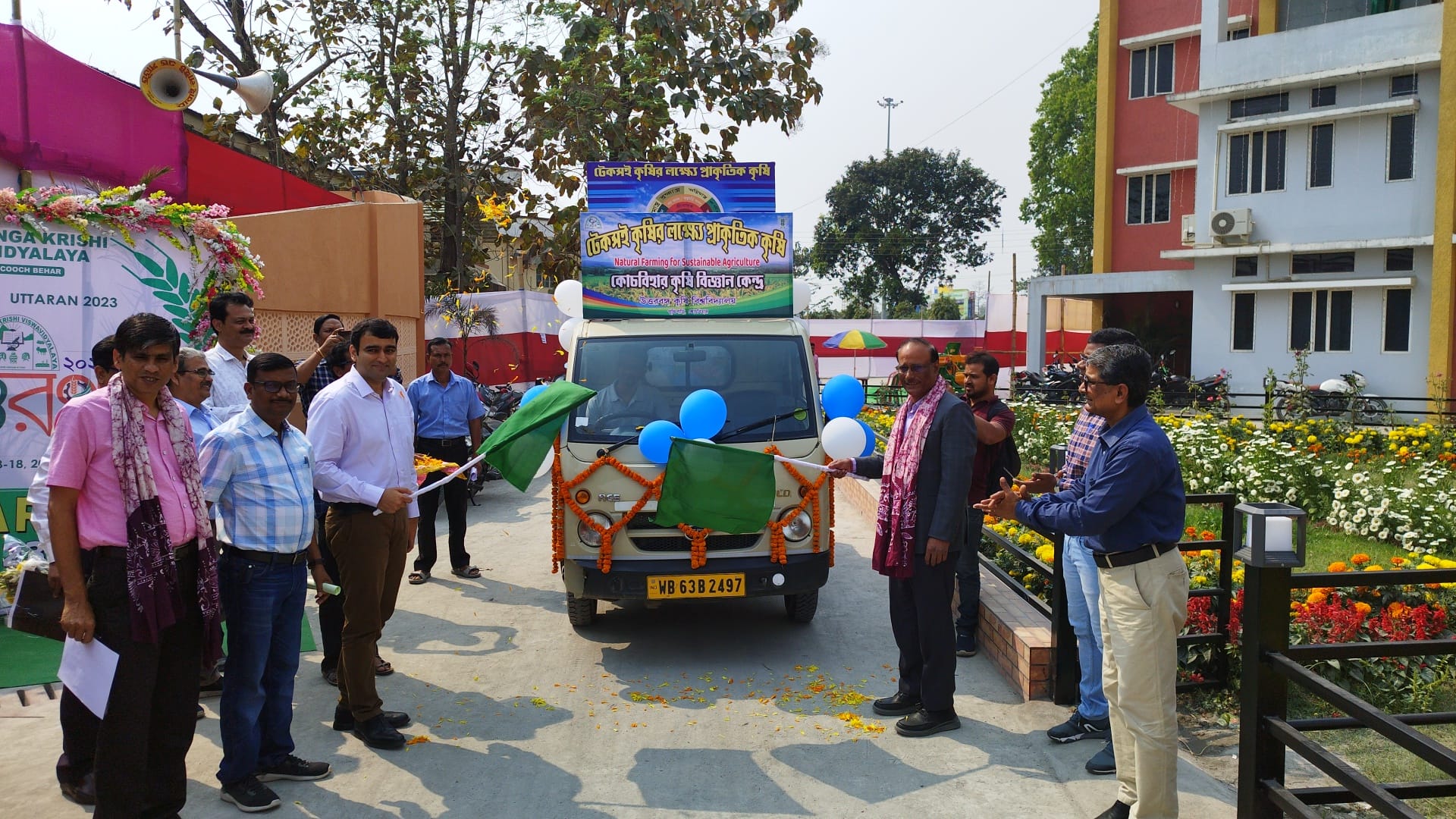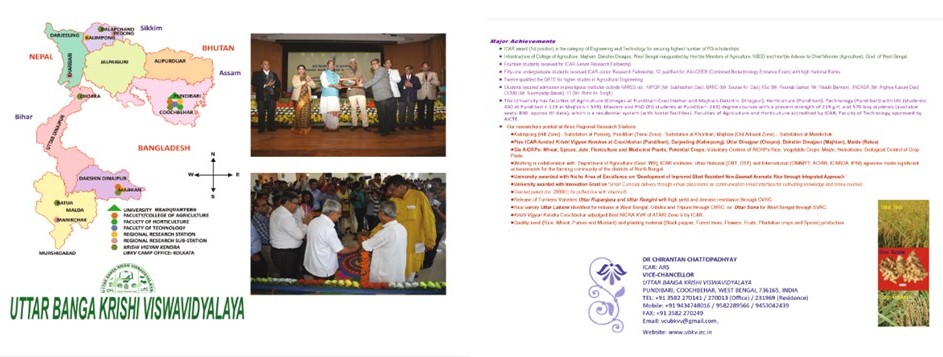Krishi Vigyan Kendras
Krishi Vigyan Kendras at each of the district of North Bengal have been established with approval and assistance of ICAR, New Delhi. All the KVKs (i.e., at Malda, Dakshin Dinajpur, Uttar Dinajpur, Cooch Behar) except that of at Darjeeling came into existence since 1st April, 2004. The Darjeeling KVK was functioning since 1993-94.
Operational area of the KVKs
| Name of the KVK | Name of the Blocks adopted so far | No. of Villages adopted so far | Major Thrust Area |
|---|---|---|---|
| Malda |
Manikchak, Ratua-I |
10 |
|
| Dakshin Dinajpur |
Balurghat & Tapan |
16 |
|
| Uttar Dinajpur |
Chopra & Islampur |
11 |
|
| Cooch Behar |
Cooch Behar-I & II, Dinhata-II |
05 |
|
| Darjeeling |
Kalimpong-I & II, Mirik, Bijanbari. |
16 |
|
Organisational Structure of KVKs in general
- To organize Training programmes on field crop production and management techniques; Horticulture crop husbandry, processing, post-harvesting and value addition; soil health and fertility and fertility management; dairy, poultry and piggery management; plant protection (Pest-disease management); fishery development and fish farming; Home science and women empowerment for practicing farmers and farm women. As the entire area is backward caste dominated, special emphasis has been given to cover more and more farmers from this category. About 35,949 (Thirty five thousand nine hundred forty nine) in total have been trained in this field and 55.34 per cent springs from backward caste.
- To organize Front Line Demonstration programmes on agriculture and allied aspects to attract farmers’ attention as well as to get feed back information. Front Line Demonstration programmes have been conducted on region-specific need and on the demand of the farming community of the zone. Thus, FLDs have been conducted on
- Pulse and oilseed crops, horticultural crops, enterprises like Vermi-compost, phosphocompost etc. besides being on various cereal crops. So far, FLDs on various aspects have been conducted on a total of 774.55 acres of farmer’s field involving 6344 farmers and obviously, a large part (51.31 per cent) of these farm folk is from backward caste.
- Seed multiplication and distribution among the local farmers is another important objectives the KVKs have undertaken. Seeds are produced according to the zonal suitability and demand from the farming community. At present, seed production is mainly concentrated on production of seed on cereal crops (mainly rice), pulses, oilseeds, vegetables, spices and others. About 150 MT of cereals, 9 MT of oilseed crops, 5 MT of pulses, 20 MT of spices and 45 MT of other crops have been produced and distributed so far. Also saplings of different horticultural crops have been produced and distributed among the farmers of the locality.
- Besides the regular research and extension activities, KVKs at various location organize other extension programmes in the form of observing Krishi Melas, Kishan Gosthi, Field Day etc. On an average, 6-8 Field Days and a Kishan Mela are observed in a year by each KVK to popularize and update ins and outs of agriculture, horticulture, fishery and other related components among the farmers of adjoining areas.
- Around 8000 farmers have been provided the benefit of diagnostic services so far.


















